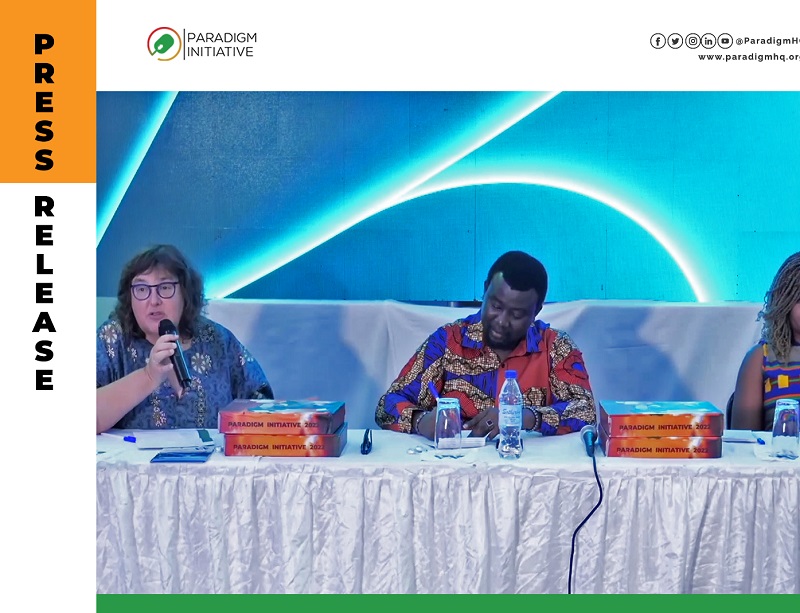General News
What Will Online Privacy and Security Look Like in 2022?

By Andrew Bourne, Regional Manager – Africa, Zoho Corporation
In many ways, 2021 was a landmark year for online privacy. In April 2021, Apple rolled out an update allowing users to opt out of app tracking, with most iPhone users having done so by the end of the year. There were even talks to disable tracking technology on the world’s most popular web browser.

We also saw movement on the legislative front, with South Africa’s Protection of Personal Information Act (POPIA) coming into effect in July. (Kenya and Nigeria’s equivalent acts came into effect in 2019). In fact, Gartner predicts that modern privacy laws will cover 75% of the world’s population by the end of 2023.
But there’s also clearly still a lot of work to be done. By the end of September 2021, there had been more data breaches than in the whole of 2020, impacting hundreds of millions of people. The average cost of a data breach rose to US$4.24-million, the highest it’s been in 17 years.
What this illustrates is that online privacy and security is an ongoing battle and that organisations of all sizes will have to keep stepping up their efforts when it comes to protecting their customers and staff. While it’s hard to predict exactly how this will play out in 2022, there are several definite trends that will have an impact throughout the course of the year.
Privacy will become (even more) mainstream
With big tech embracing privacy, or at the very least making an effort, it’ll likely become even more mainstream. This will be a positive in many markets, especially where the majority of ordinary business owners are naive to their consumers’ privacy wants and needs.
A survey Zoho conducted earlier in 2021, for example, found that only 22% of South African businesses are aware of privacy laws governing their marketing activities, despite POPIA coming into effect on 1 July. It also found that while 76% of the businesses indicated that they have well-documented policies for customer data protection, only 57% are strictly applying those policies.
At Zoho, data privacy is perceived as not just a legal obligation but an ethical choice. The team is serious about customer data protection and strives to develop applications that treat user data responsibly. In 2020, Zoho also took a strong stance against adjunct surveillance—the practice of monitoring data and activity through third parties, cookies, and trackers embedded in the software/website—and removed all invasive/non-essential third-party trackers from its websites.
The growing importance of (safely) dumping data
Having spent years trying to gather as much data as possible on their users, companies are starting to realise that it’s not always an asset. In fact, many organisations are sitting on vast “data graveyards” that are a major security liability.
The better they get at safely disposing of that data, the less risk they’ll face when it comes to cybersecurity breaches. With increasingly robust laws, companies will be forced to improve their governance but the organisations that fare best will be the ones that go above and beyond when it comes to data governance.
Increased demand for transparency
As an effect of privacy becoming an increasingly mainstream issue, it’s also become a much bigger concern for ordinary consumers who are turning privacy-conscious with each passing day. People want to know that companies aren’t going to collect data that they aren’t comfortable sharing and that the companies will be wholly transparent with the data they do collect. For the next few years, organisations that boldly come forward and declare their data collection practices with complete transparency and accountability will gain a competitive advantage.
A higher responsibility
Ultimately, the onus is on the organisations to set up a company-wide data governance framework which ensures that only the minimum necessary amount of data is collected from customers along with their explicit consent and is further used, stored, and managed responsibly. Equally important, organisations should ensure that their business software providers and vendors also follow the same amount of strict guidelines, policies, and compliance procedures when it comes to data privacy.
General News
Moniepoint Marks 10 Years of Transforming Nigerian Businesses

Moniepoint Inc., Nigeria’s definitive platform for small businesses and Africa’s all-in-one financial ecosystem, today released its 2025 Year in Review, marking a decade of “financial happiness” and a transformative year of growth.

Moniepoint
Highlighting its role as the backbone of Nigeria’s entrepreneurial economy with over 6 million active businesses, the company revealed that its microfinance bank has now disbursed over ₦1 trillion in credit to thousands of businesses from provision stores and supermarkets to building materials sellers.
It is worthy to note that on average these businesses experienced growth by more than 36% after accessing credit, signposting its primacy as a transformational growth level and instrument of deepening shared prosperity.
Moniepoint uses alternative data points that include transaction histories, business patterns and payment behaviours in a bid to accommodate what traditional credit scoring misses to drive financial inclusion and access to credit.
The company’s 2025 performance reinforces its role as a critical financial infrastructure which not only supports the Nigerian economy, but also impacts everyday lives, creating immense value.
Founded in 2015 by Tosin Eniolorunda and Felix Ike, Moniepoint Inc (formerly known as TeamApt Inc) has established itself as the leading financial platform for Nigeria’s vast network of small and medium-sized businesses (SMEs), offering an integrated suite of services, including digital payments, business bank accounts, credit, foreign exchange (FX), and management tools.
During the year, as Nigeria’s largest merchant acquirer, now powering 8 out of every 10 in-person payments made across the country, Moniepoint MFB, the banking and payments subsidiary, processed ₦412 trillion in transaction value handling more than 14 billion transactions. This clearly suggests that Moniepoint is well-positioned to play a greater role in Nigeria’s steady march towards a trillion dollar economy by 2030.
“Our journey has been one of intentional evolution,” said Tosin Eniolorunda, Group CEO and Founder of Moniepoint Inc. “What started as a passion to solve overlooked problems has evolved into a platform powering the dreams of millions.
“As 83% of employment in Africa exists in the informal economy, our mission to create financial happiness is an operational mandate that guides our product development, our market expansion, and our capital allocation decisions.”
Beaming with enthusiasm, Eniolorunda continues, “Yet for all we have accomplished, we approach our second decade with the clarity that our work remains unfinished.
“As we enter this next chapter, we do so with strengthened conviction in our strategy, deepened partnerships with world-class institutional investors, and an organisation scaled to deliver on Africa’s entrepreneurial potential.
“The infrastructure we have built over the past decade provides the foundation. The journey is far from over, but our resolve has never been stronger. To our partners, our customers, and our team: thank you for a decade of impact. We are just getting started.”
In 2025, Moniepoint Inc. reached a series of critical inflexion points, highlighted by the successful completion of its Series C funding round, which raised over $200 million in equity financing from leading institutional investors, including Development Partners International, Google’s Africa Investment Fund, Visa, the International Finance Corporation, and Verod Capital.
The year also marked the launch of MonieWorld in the United Kingdom, extending Moniepoint’s platform to serve the African diaspora by strengthening key remittance corridors and laying the foundation for the delivery of comprehensive cross-border financial services.
Moniepoint MFB re-launched its savings product in a firm demonstration of the company’s commitment toward its’ oft stated mantra of providing financial happiness. Data reveals in terms of savings behavioral patterns, the majority of users choose to save on a daily basis, with focus across business operations (24%), rent (16.5%), and education (10%) representing top savings priorities.
The launch of Moniebook and the acquisition of a national Microfinance Bank license for Moniepoint MFB further expand the company’s regulated capabilities and product depth.
TeamApt Ltd, the switching and processing subsidiary of Moniepoint Inc., also achieved major regulatory and operational milestones in 2025 that have solidified its position in the global payments landscape. After a rigorous certification process, the company successfully secured licenses from Mastercard and Visa to act as a processor and acquirer for these global card schemes..
This strategic move allows TeamApt to support international card payments directly and offer these critical switching services to other businesses across the continent.
Monnify, the web payment gateway processed N25 trillion in the period under review, demonstrating remarkable resilience and industry confidence firmly positioning it for more business-to-business transactions.
Moniepoint’s impact extended beyond banking into critical social interventions even as the company partnered with the Federal Government to support the Rice Intervention Programme, reaching nearly 850,000 beneficiaries, and worked with the Kaduna State Government in grants disbursement to vulnerable citizens.
Through these initiatives, Moniepoint continues to build the infrastructure required to unlock Africa’s entrepreneurial potential, positioning itself as a trusted partner for the delivery of large-scale economic empowerment programmes.
As Moniepoint Inc. enters its second decade, its well chronicled decade-long evolution from a backend technology provider to a household name, directly complements the Nigerian government’s vision of a more inclusive, data-driven, and productive financial landscape. To read more about the 2025 Year in Review Report:, visit http://2025.moniepoint.com
General News
Paradigm Initiative Hails New Data Protection Laws as World Marks Privacy Week

As the world observes Data Privacy Week under the theme “Take Control of Your Data,” Paradigm Initiative (PIN) has commended countries that enacted or strengthened data protection laws in the past year to protect citizens’ privacy rights.

PIN
The week marks the January 28, 1981, signing of Convention 108, the first international treaty on data privacy and protection.
PIN spotlighted Djibouti, The Gambia, and Burundi for passing data protection laws in June, September 2025, and January 2026, respectively. It also recognised Botswana, whose law took effect in January 2025, and Algeria, which amended its legislation in July 2025 to mandate Data Protection Officers.
“We applaud these strides,” PIN said, urging data protection authorities across Africa to prioritise implementation and enforcement to uphold data subjects’ rights.
In Nigeria, PIN’s advocacy has yielded key wins. In 2024, it challenged unauthorised websites selling sensitive personal and financial data of Nigerians for as low as N100. Strategic litigation forced United Bank for Africa (UBA) PLC to pay N8 million to customer Miss Folashade Molehin for unlawfully opening a domiciliary account without her consent.
In 2025, the Federal High Court in Abuja ruled against Domino’s Pizza (operated by Eat’n’Go), awarding Chukwunweike Araka Akosa N3 million for unsolicited direct marketing via his phone. The court deemed it a violation of Section 37 of the 1999 Constitution and Sections 25 and 26 of the Nigeria Data Protection Act, 2023. The case originated via PIN’s Ripoti platform, which documents and redresses digital rights abuses across Africa, offering pro-bono legal aid.
Yet challenges persist. PIN warned that countries like the Democratic Republic of Congo, Mozambique, South Sudan, Sudan, Guinea-Bissau, Eritrea, and Western Sahara lack robust laws, exposing citizens to grave privacy risks.
It called on Liberia, Namibia, Sierra Leone, Mozambique, and Libya to urgently enact data protection frameworks.
General News
MTN Group Names Shoyinka Shodunke IT Core Design Executive Ahead of March 2026

MTN Group has announced the appointment of Shoyinka Shodunke as Executive: IT Core Design and Delivery, effective 1 March 2026.

Shoyinka Shodunke
Shoyinka brings more than 29 years of experience in technology leadership, digital transformation and innovation across Africa’s telecommunications sector.
His career spans several senior roles, including Director of Technology at Vodafone Ghana, Chief Technology and Information Officer (CTIO) at MTN Cameroon, Chief Information Officer (CIO) at MTN Zambia, and General Manager: Architecture for the MTN Shared Services Hub in Southeast Africa.
He currently serves concurrently as CIO for MTN Nigeria and MTN South Africa, where he has led large-scale digital initiatives impacting more than 80 million subscribers and overseen a technology ecosystem comprising over 350 professionals.
Shoyinka is recognised for a leadership approach anchored in adaptive intelligence, resilient system design and collaborative value creation.
His work has focused on leveraging Artificial Intelligence (AI) to enhance human creativity, strengthen system resilience and drive innovation at scale.
In 2025, he was named MTN Group CIO of the Year for his role in advancing one of Africa’s most ambitious digital transformations, supporting MTN’s evolution from a traditional telecommunications operator into an AI-enabled technology organisation.
He also received the Tech Champion in Telecoms and CIO of the Year awards at the CIO and C-Suite Awards Africa.
His academic background includes an Advanced Management Programme (AMP) at Harvard Business School, an MBA from the University of Northampton, a Postgraduate Diploma in Global Management from the University of Salford Manchester, and a Bachelor of Technology in Mathematics and Statistics from the Federal University of Technology in Nigeria.
In his new role, Shoyinka will lead the development and execution of standardised and AI-enhanced IT architectures across MTN’s footprint.
His responsibilities will include integrating AI-driven automation, predictive analytics and digital transformation initiatives to improve customer experience, operational efficiency and service agility, while accelerating innovation cycles and time-to-market.

 E-Financial2 days ago
E-Financial2 days agoPayPal Goes Live in Nigeria through Paga

 Telecom1 day ago
Telecom1 day agoPolice Bust ₦7.7bn Telecom Hack Gang, Seize 400 Laptops in Massive Fraud Swoop

 Broadcasting2 days ago
Broadcasting2 days agoNITDA, NBC Explore Strategic Collaboration on Digital Transformation, Media Regulation

 General News1 day ago
General News1 day agoNaira Smashes Through ₦1,400 Barrier in Official FX Rally

 General News1 day ago
General News1 day agoNCC Slaps ₦250,000 Fee on Trial Licences to Spur Telecom Innovation

 General News2 days ago
General News2 days agoFacebook Powers Connection, Creativity at African Creators Summit 2026

 E-Business2 days ago
E-Business2 days agoGold Hits Record $5,110/Ounce Amid Trump Tariff Threats, Geopolitical Fears

 Telecom2 days ago
Telecom2 days agoTikTok, Instagram Blamed in US Youth Suicide Lawsuit















